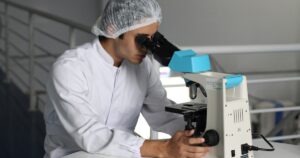Learn About Acne – Treatments, Causes and Prevention

Acne is a common skin condition that affects millions of people worldwide, regardless of age or gender. Its physical and psychological impact can be significant, leading to low self-esteem and reduced quality of life. Over the years, extensive research has been conducted to develop effective treatments for acne.

In this article, we will explore various strategies and innovations in acne treatment that have shown promising results in managing and controlling this bothersome skin condition.
Understanding the Causes of Acne
Before delving into treatment options, it is crucial to understand the underlying causes of acne. Acne occurs when hair follicles become clogged with oil and dead skin cells. This can be triggered by hormonal fluctuations, excess sebum production, bacteria growth, and inflammation. By addressing these root causes, acne treatments aim to reduce the occurrence of breakouts and promote clear skin.
Topical Treatments
Topical treatments are often the first line of defense against acne. These products are applied directly to the affected skin and work by reducing oil production, eliminating bacteria, and unclogging pores. Common topical ingredients include benzoyl peroxide, salicylic acid, retinoids, and antibiotics. These treatments are available in various forms, such as gels, creams, lotions, and cleansers. It is important to note that different individuals may respond differently to various ingredients, so a personalized approach is often necessary.
Oral Medications
For more severe cases of acne, oral medications may be prescribed. Antibiotics, such as tetracycline or erythromycin, are commonly used to target bacterial infections and reduce inflammation. Oral contraceptives are also prescribed to regulate hormonal imbalances in women, which can contribute to acne. Isotretinoin, a powerful oral retinoid, is reserved for severe and resistant cases of acne. While these medications can provide significant improvement, they often come with potential side effects and should be closely monitored by healthcare professionals.
Advanced Procedures
In recent years, advancements in technology have paved the way for innovative acne treatment procedures. These procedures are usually performed by dermatologists and offer effective solutions for stubborn acne or acne scars.
a. Laser and Light Therapy: Laser treatments target the sebaceous glands, reducing oil production and killing acne-causing bacteria. Light therapy, including blue light and red light therapy, can also be used to target bacteria and reduce inflammation.
b. Chemical Peels: Chemical peels involve the application of a chemical solution to exfoliate the skin, removing dead cells and unclogging pores. This process promotes cell turnover and can lead to smoother, clearer skin.
c. Microneedling: Microneedling utilizes tiny needles to create controlled micro-injuries in the skin, stimulating collagen production and enhancing the skin’s natural healing process. This procedure can improve acne scars and overall skin texture.
Lifestyle Changes and Home Remedies
In addition to medical treatments, certain lifestyle changes and home remedies can contribute to acne management. These include maintaining a consistent skincare routine, avoiding excessive touching or picking at the skin, and practicing good hygiene. Furthermore, a healthy diet rich in fruits, vegetables, and whole grains can support skin health.

